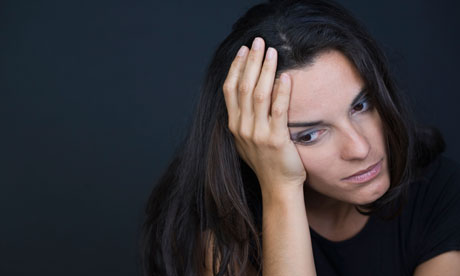
One in five of us will get depressed at some point in our lives, says the Royal College of Psychiatrists. But in a column in the BMJ this week, Des Spence, a GP from Glasgow, argues that antidepressants are prescribed too readily, for too long, and are less effective than people think. We are, he said, at risk of medicalising unhappiness. So it's timely that research published this month in the journal PLOS One suggests another way of dealing with depression. Instead of medication, it recommends self-help books. They're relatively cheap and, unlike antidepressants, won't make you constipated or lose your libido. There is already support from the Royal College of Psychiatrists, which is involved in the Books on Prescription scheme, selecting books for libraries that can help people with mental health problems. So should you turn to literature to help treat your depression?
The solution
The PLOS One study was a randomised controlled trial. It compared people using a self-help cognitive behavioural therapy guide (Overcoming Depression: a Five Areas Approach) who also had three or four face-to-face support sessions with a psychologist (some of the group were also on antidepressants), to those having regular treatments (antidepressants and psychological therapy). There were 281 people in the study to begin with, but only 72% continued, to be followed up at four months. At that point the people using the books were feeling much less depressed than those just on the usual therapy treatments, and this remained true at 12 months. It's worth noting that one of the authors of the paper wrote the guide that his research was evaluating. But PLOS One has made the data from the study available, so if you suspect bias you can have a look and do the sums yourself.
The guide worked because it uses a cognitive behavioural approach, which studies have shown is effective for some people more than antidepressants. CBT coaches you to think about yourself and how you interact with the world so you can behave in a way that makes you feel better. It's popular because it focuses on the here and now (courses last between six weeks and six months) and doesn't delve into your childhood.
Waiting lists for CBT are notoriously long, so a book that can help you do it yourself (with a total of two hours guidance from a psychologist) should be a winner. Guided self-help won't cure everyone – the study included people with milder symptoms. It is not suitable for those with severe depression or for anyone having suicidal thoughts. If you feel depressed you should see your GP and discuss the best treatment. It may not be as convenient as buying a book but it is much safer.

